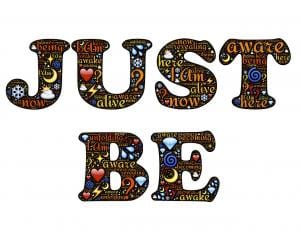[Note: This is the second part of a two-part blog]
There is a hilarious scene in the movie, ‘The Frisco Kid’, where Gene Wilder, an orthodox rabbi is ‘imported’ from a yeshiva in Poland to minister to an American congregation in Philadelphia. He is totally lost until he spots of group of black-clad, grey-bearded, somber-looking Amish men in the distance. He rushes up to them shouting in Yiddish, “Lonsman!, lonsman!!” thinking that they were Ultraorthodox Jews like himself. Strictly speaking the term, ‘lonsman’ means ‘fellow countryman’ or ‘compatriot’ but when used in the Jewish ghettos of eastern Europe and Russia, it meant ‘neighbor’ or, really, ‘fellow Jew.’
The word ‘neighbor’ has had a long, checkered history. It bespeaks a special relationship but, initially, one based on geographical proximity rather than quality of connection. According to the Pentateuch, the newly escaped Hebrews were anything but neighborly to the tribes they encountered on their way towards and into ‘the promised land.’ Joshua began the conquest of Canaan by crossing the Jordan at Jericho, and the 200-year campaign was completed by king David when he captured Jerusalem in 1010 BCE. Fast forward a millennium and Jesus, in response to the question, “Who is my neighbor?” tells his famous parable of ‘the Good Samaritan’ in which a new ‘conquest’ – a spiritual campaign of compassion and inclusivity – begins in Jerusalem and ends in Jericho. In this parable the hero is an ‘enemy’ figure – a compassionate citizen of Samaria.
Interestingly, both of the names – Yeshua (Jesus) and Joshua – mean ‘God saves.’ But they are very different notions of ‘salvation.’ Jesus’ teaching, however, as exemplified by the ‘Christian’ churches, has been much more honored in the breach than in the observance. A history of persecution, crusades, inquisitions and excommunications has marked the ‘success’ of this religion. ‘Neighbor’ became those who swallowed the party line; others were then admissible ‘prey.’ In the USA today – an allegedly Christian nation – ‘neighbor’ for the Democrats means only fellow Democrats, for the Republicans means only fellow Republicans; for the Liberal Left it means only others on the Liberal Left; for the Conservative Right it means only others on the Conservative Right; For Trump supporters, it means only other Trump supporters; and for Clinton Supporters it means only other Clinton Supporters. The Good Samaritan must be turning in his tomb; Jesus, luckily, managed to resurrect before all of this ‘mishugas’ got underway.
Until we rediscover that ‘neighbor’ is all sentient life forms with whom we share the planet, our personal cosmology and its mission are going to limp along badly.
- What is my mission?
Each soul is committed to two levels of mission. Firstly, to grow in love as an incarnated individual; and, secondly, to be part of the team that shifts the world into Christ Consciousness. Let me examine each part.
We are born with two basic emotions: fear and love. When fear is inner-directed, it becomes anxiety/depression; when it is outer-directed, it becomes anger or even rage. When love is inner-directed, it becomes self-esteem; and when it is outer-directed, it becomes compassion. All of these then combine and permute to create all of the other vices and virtues. In effect, all vices are simply fear in different environments; and all virtues are simply love in different environments.
The individual mission, then, is to work on developing a few forms of love e.g., courage, compassion, trust, patience, resilience… and to overcome some forms of fear e.g., anger, anxiety, unforgiveness, prejudice… Each soul volunteers to parachute into a life/incarnation which affords it the ideal circumstances (physical body, talents, family, era, culture…) to work on those tasks. The hand that you were born with is the hand that you pre-planned in the bardo before you incarnated.
And you came bearing two kinds of gifts – talents, with which you are meant to serve the world, not hoard nor use to inflate your ego; and ‘problems’ which are your gift to yourself, to stretch you into virtue. Mostly, however, we preen ourselves on our talents until the ego begins to look like the Pillsbury Doughboy, and we project our problems onto others and then throw stones at them.
Any vice, in reaction to the behavior of others, is a waste of the drama set up specifically to teach us to love. It’s like members of a team getting angry or dispirited because the opponents seem to be winning the game. You chose these very opponents for the expressed purpose of improving your own skill set. For some people, then, ‘virtue’ or ‘mission’ is about being a ‘good soldier’, learning obedience; for others, it is being a renegade or prophet or outlier to the culture. So, we are all learning different virtues. Getting angry at people who major in English Lit because you are majoring in Physics is to misunderstand the whole idea of a university.
Conclusion
If we could adopt a God’s-eye perspective, the world is exactly where it needs to be in order to afford each individual or group the ideal opportunity to fulfill its mission and learn the form of love that it signed up for.
Bon voyage!













